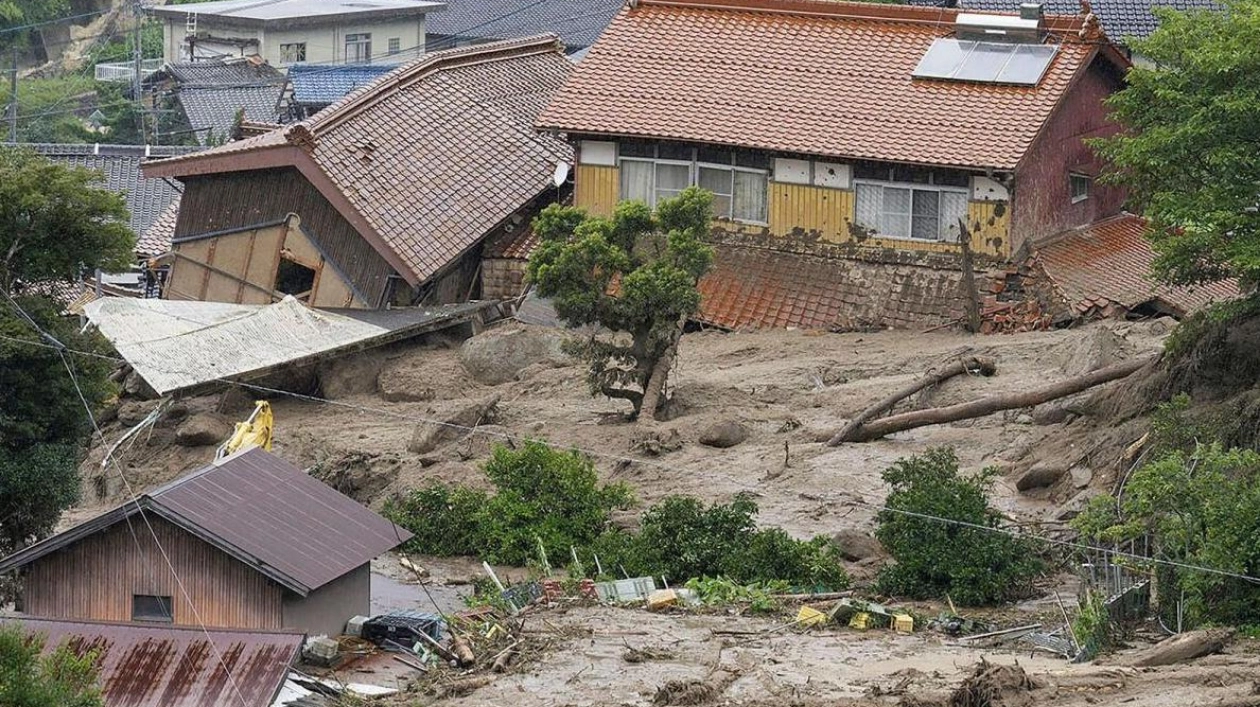Japanese authorities have instructed tens of thousands of residents to evacuate the earthquake-affected northern region of Ishikawa due to 'unprecedented' rainfall that has caused floods and landslides. By 11am (0200GMT), a dozen rivers in the region had overflowed their banks, according to Masaru Kojima, a land ministry official. The cities of Wajima and Suzu, along with Noto town, have mandated the evacuation of approximately 44,700 residents, as reported by local officials. The Japan Meteorological Agency (JMA) issued its highest level warning for Ishikawa, emphasizing a 'life-threatening situation'. JMA forecaster Satoshi Sugimoto highlighted that the affected areas were experiencing 'heavy rain of unprecedented levels', urging immediate safety measures. In Wajima, at least one person is missing, and numerous buildings are inundated, with landslides obstructing roadways, according to the Ishikawa government. NHK footage showed an entire street in Wajima submerged. Three rivers in Ishikawa are overflowing into nearby communities, a local official informed AFP. One house was struck by a landslide, according to the Fire and Disaster Management Agency, though further details were not provided. Additionally, 16,000 residents in Niigata and Yamagata prefectures north of Ishikawa have been advised to evacuate. Wajima and Suzu, located on the Noto peninsula, were severely impacted by a New Year's Day earthquake that claimed at least 236 lives. The region continues to recover from the magnitude-7.5 quake, which caused widespread damage. Recent years have seen unprecedented rainfall in parts of Japan, leading to floods and landslides that sometimes result in casualties. Scientists attribute the increased risk of heavy rain to human-driven climate change, which causes a warmer atmosphere to hold more water.

Text: Lara Palmer
25.09.2024
Floods and landslides triggered by heavy rain force tens of thousands to evacuate in northern Japan.





